Busting the Luckin Coffee Fraud with Big Data
Re-reviewing an impressive report
You can watch the video below
Author’s Note: With the recent news of Luckin Coffee’s settlement with the SEC, I felt that it was the time to bring this particular post back out of the archives to chat about. And if you want to read the PDF report first before hearing me talk about it, then you can find it here.
About that Starbucks thing …
A lot of people mentioned the idea that Starbucks commissioned the report. This is despite the news coming from a reputable newspaper (the WSJ) that a hedge fund did the hard work and lifting for the report. It’s a bit weird that a huge company like Starbucks would actively contribute to write and publicize a report like this.
For what it is worth, it is likely that they knew that these financials were not making sense. They might have provided background information to the hedge fund doing the report. But that’s not the same as writing it. That’s a lot more work than a coffee shop would be capable of. If I were a manager at Starbucks, I’d rather be spending my resources and time on developing new shops and extending the already-formidable lead I had over Luckin. But I know some people can’t let go of a conspiracy theory
Did that fund make money?
Shorts are tough for hedge funds. More often than not they fail. Everyone likes to bring up the mortgage crisis, John Paulson, and all that jazz, but the reality is that most shorts end up like David Einhorn’s short of Tesla, Netflix, or Bill Ackman’s infamous short of Herbalife. Ackman’s Herbalife short had a massive 334 slide, 3 hour presentation for what it is worth.
I feel a bit bad for a fund like Snow Lake. They put a lot of effort into making this report. They put effort into circulating it around the fund community, but between the cost of shorting the stock and the time it took to get the word out, they probably didn’t get a big enough gain out of it. It sucks because even though they did it for a financial incentive, the resulting knowledge is a public good. Less frauds out there is a good thing.
I want to talk about a very special investigation - the one that broke the Luckin Coffee financial fraud, crashed a once high-flying stock, and added fuel to the Sino-American trade war.
There is nothing special about financial frauds. They happen all the time. And China has no monopoly on financial frauds. A big one just happened recently with Wirecard in Germany. But the thing about the Luckin Coffee investigation that impressed me was the sheer depth of detective work and data brought to the case by an outside party.
The report was a pretty stunning effort and I consider it a financial work of art. I want to go through it today.
About Luckin Coffee
Things in China happen fast, but few things blew up (in both good and bad ways) as fast as Luckin Coffee. The company was founded in October 2017 by Charles Zhengyao Lu, a Chinese businessman who founded Car Inc, a Hong Kong-based car rental company. In January 2018 they started opening their first shops in Beijing.
Luckin Coffee competes with Starbucks in China. Unlike Starbucks, their shops are of the small, ‘hole in the wall’ variety - about 200-600 square feet in comparison to Starbucks' 1,500 to 2,000 square feet. You can't sit in their cafes - they are mostly good for preparing the coffee. You order through an app and then pick it up at the cafe.
The company used aggressive discounts to gain prominence and mind share. Each new customer gets a free drink and a 50% off coupon for another cup. They also issue buy-one-get-one free offers for their loyal customers. They are definitely taking the Uber route.
The company received a $200 million injection of funds with a Series A round six months later in July. Investors included esteemed names like Blackrock (the biggest asset management firm in the world), China International Capital Corporation (one of China's leading investment banks), and the Singapore sovereign wealth fund (managing $440 billion). Then less than a year later, the company IPO’ed its shares on the US stock exchange in May 2019.
This is really really fast considering that you have huge VC-funded companies like AirBnb and other unicorns staying private for as long as possible. But the stock soared at first, doubling and taking the company’s valuation to as high as $12 billion.
Beautiful Top Line Metrics
Investors drove up the stock because the metrics looked beautiful. In November 2019, the company release eye-popping Q3 results and the stock skyrocketed. Q3 2019 results showed:
Store expansion up 50% from Q1 2019 and 300% from the previous year. Luckin operated some 3,680 stores at the end of Q3. Management predicted 4,500 stores by the end of the year - challenging Starbucks' 4,125. Luckin was opening a store once every 15 hours.
Titanic revenue growth year over year - up 517% from $35 million in 2018 to $216 million in 2019. Management predicted that they will be profitable in FY 2021.
The number of monthly customers transacting at the stores was up sequentially from quarter to quarter. In addition, they were buying more and more - from 3.7 items per order to 4.74 monthly. This kind of growth is crazy.
Investors believed that Luckin represented a credible competitor to Starbucks. People looked at the fact that Starbucks never grew as fast as Luckin even in the 1990s. And they looked at the 1.3 billion people in the market. And they fell in love with the growth story.
And I suppose they would be right to do so ... if the metrics were actually real.
The Report
Muddy Waters Research is a famous short-selling firm and they are famous for publishing and making money off a few big China-centered shorts. But they did not claim to have done this 89 page report.
The report alleges five things:
1) Number of items sold per store per day was inflated by 69% in 3Q 2019 and 88% in 4Q 2019
2) Items per order actually declined from 2Q to 4Q rather than growing
3) Net selling price per item was inflated
4) Advertising costs was overstated, recycled through a company called Focus Media
5) Revenue contribution from "other products" is over stated.
I want to focus on the first few items, because they are the most impressive.
Number of items sold per store per day
The first item. Luckin estimated that in 4Q 2019, each of their 3,800-4,000 stores would sell 495 items each day. That is what they reported to their shareholders.
In order to confirm this number, the report author hired 92 full time staff and 1,418 part time staff to sit at 620 stores and run video surveillance on each of them for literally the entire day.
They covered 38 of the 53 Chinese cities that Luckin reported. To find the shops, they scraped the Luckin app. Then they hired someone to go sit at the store and point a camera at the takeout counter. For as long as the store was open. So for 11+ hours. If over 10 minutes of footage was found to be missing then they would discard footage from the entire day.
They did this for dozens of cities and locations across all of China. Weekends. Weekdays. Not going to lie. That is kind of impressive.
And they had to do it without getting caught. Was someone not going to notice a dude sitting there watching the counter the whole day?
Then, they sat down and counted for 11 hours the number of customers picking up orders at the counter.
They also counted the number of order bags picked up by food delivery men.
Collecting Receipts
The report author did not stop at watching CCTV footage. They put the call out and collected 25,843 customer receipts from over 10,000 customers in 45 cities.
Each receipt shows when and where the purchase was made, what kind of purchase it was (pick up or delivery), the items purchased, the list price, and the actual price paid.
The receipts were collected in proportion to Luckin's population in terms of city tier and store type - achieving a 99% statistical confidence interval. The margin of error on ASP and items per order is expected to be 1%.
The data found that the items per order has been declining ever since 4Q 2018. People buying delivery have to buy multiple orders - so what is happening is that more and more people skip out on buying delivery and just come in to buy 1 freshly brewed coffee with their discount coupon.
The receipts also implied that Luckin inflated its net selling price per item by at least 12.3%. The company CFO had predicted the company would have a net selling price of 11.2 RMB in 4Q. The receipts showed an actual number of 9.87 to 10.07 RMB.
The CFO also said that 63% of their customers are paying more than 50% of the retail price - this is to calm fears from analysts that the company was discounting too much. The receipts actually showed that this number was also false - just 28.7% of orders are at 50% of the retail price.
Note the date. This is in January 2020. Q4 2019 is already closed. Either management can't keep track of their own data or they were lying through their teeth.
Fallout
On January 31st 2020, Muddy Waters publicized their short position and the stock dropped a bit. Luckin coffee denied the allegations but said that they would do an internal investigation. The stock largely recovered.
Then on April 2nd, the company issued an SEC filing and admitted the presence of fraud. $310 million of revenue had been fabricated in the last three quarters of 2019.
The stock got annihilated, dropping 95% from $26.20 to $1.39 in just about 51 days. The NASDAQ index promptly delisted the stock. People lost billions of dollars.
Politicians got wind of the scandal and used it as a reason to demand greater transparency and oversight on Chinese companies listed in the United States. US watchdogs cannot see into Chinese companies' books and thus rely on Chinese audit firms to confirm their numbers. But China by law does not allow the US audit oversight committee - the PCAOB - to examine Chinese audits.
US Senators want to pass a law that says that if Chinese companies don't open up their books then they will kick multi-billion dollar companies like Pinduoduo, Alibaba and Baidu off the US market. Chinese founders keep listing their companies in the US partially because it lets them monetize their stakes in US Dollars rather than Chinese Yuan - a currency they cannot send out of the country.
The whole thing has turned into a bit of a kerfuffle and a deadlock. The Luckin Coffee scandal has not made things any less awkward.
Chinese regulators would raid Luckin Coffee's offices and open an investigation of their own. They would move the company through its own legal system and of course make things all good for everyone involved. Right?
Who wrote it?
With all this happening, you just got to wonder. Who wrote this report? This investigation took a lot of work and money - estimates were something like $2-3 million. The people who did it were not just ordinary dudes on the internet. They churned on it - and they also have not publicly stepped forward to take credit for it even after the scandal went public.
WSJ says that the short report was prepared by a China-focused hedge fund called Snow Lake Capital - a fund with $2.5 billion under management. The sad thing is that it is not entirely clear whether or not they made enough from their investment to make the work worth it.
I think the thing that really gets me about this is that it took someone literally recording hours and hours of footage every day for three months straight before the fraud was uncovered. Someone put in unprecedented amounts of work to catch it. Were it not for a fund like Snow Lake investing months of work and millions of dollars into this investigation, how long could this have gone on undetected?


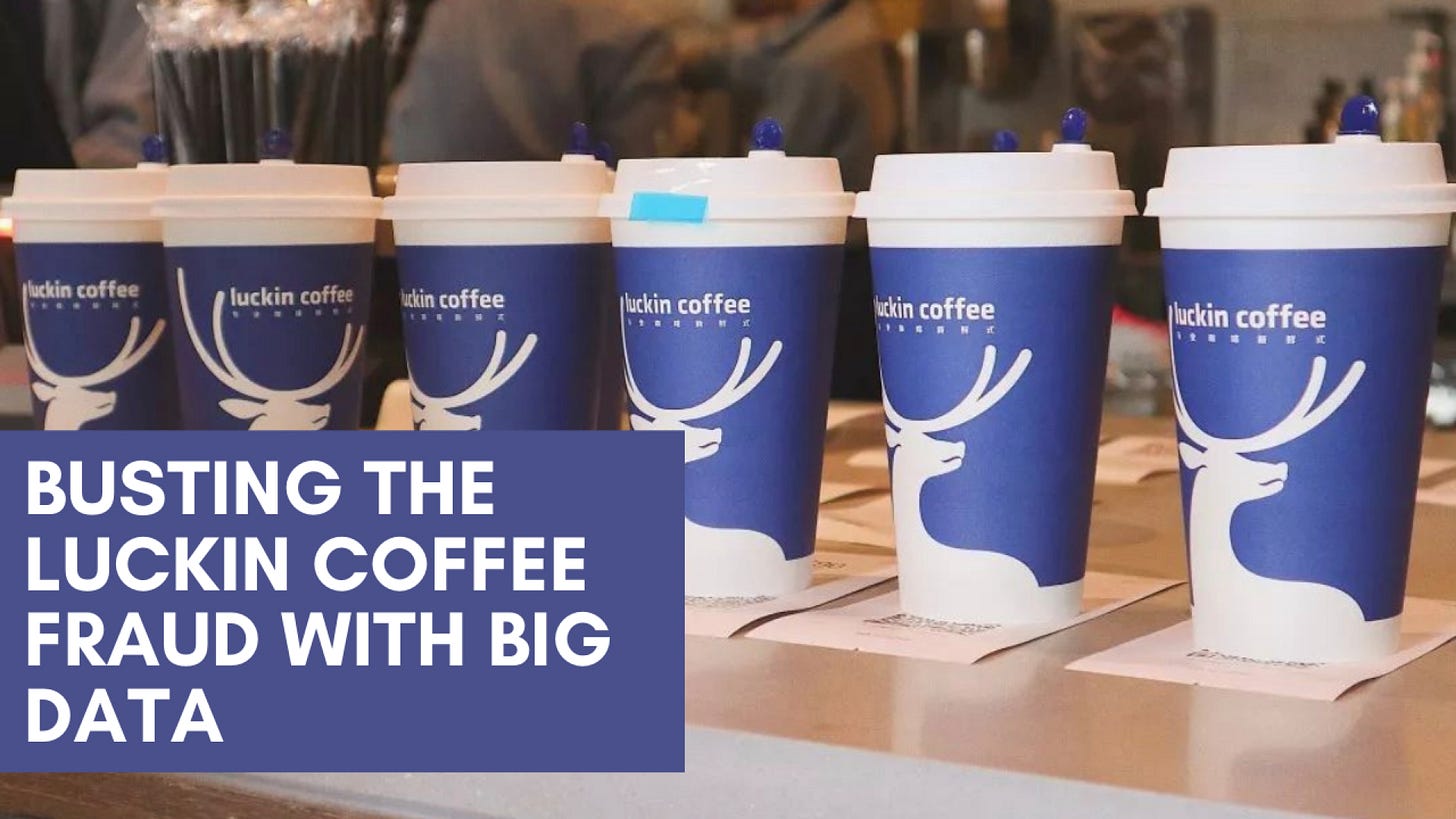
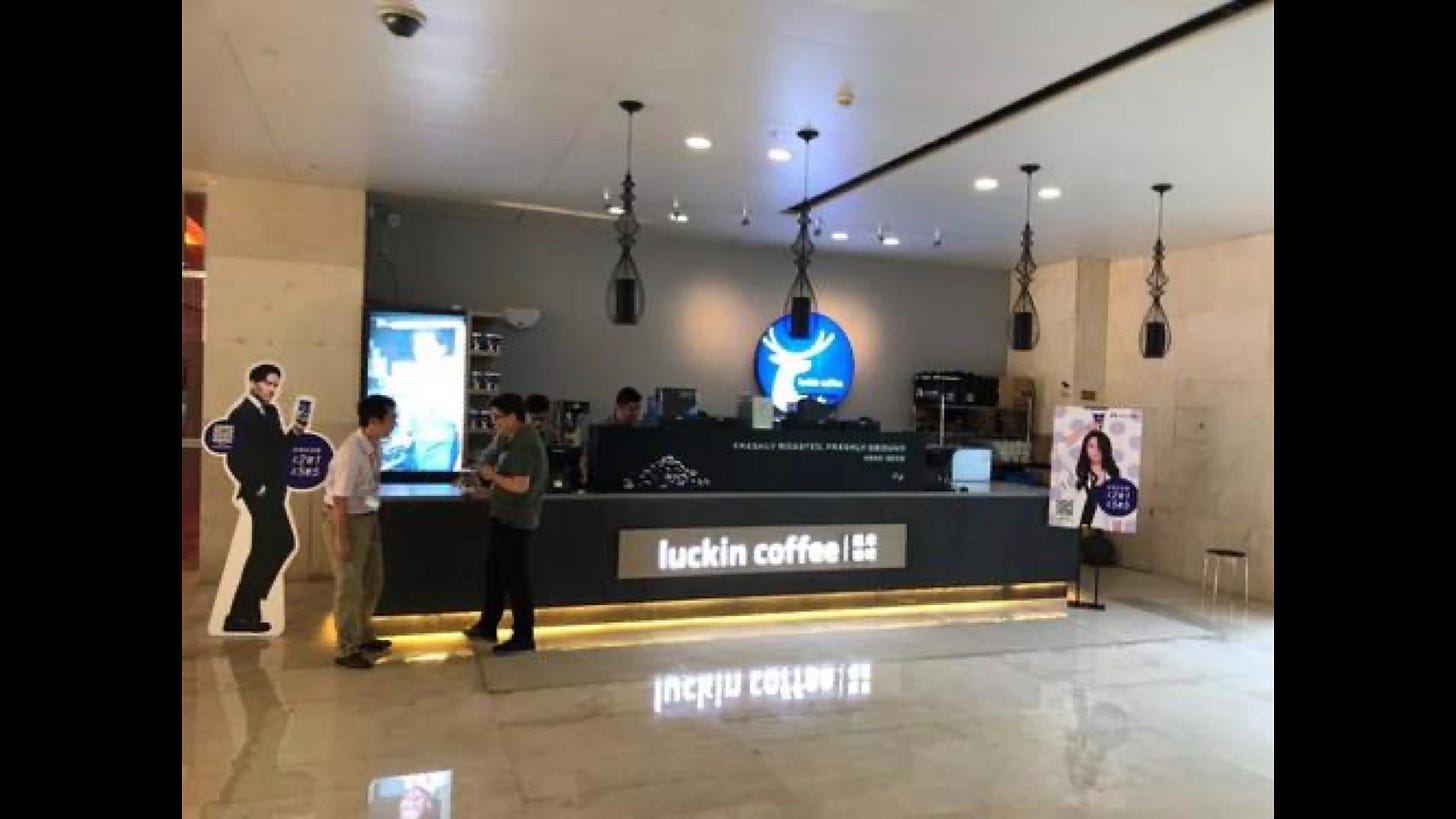
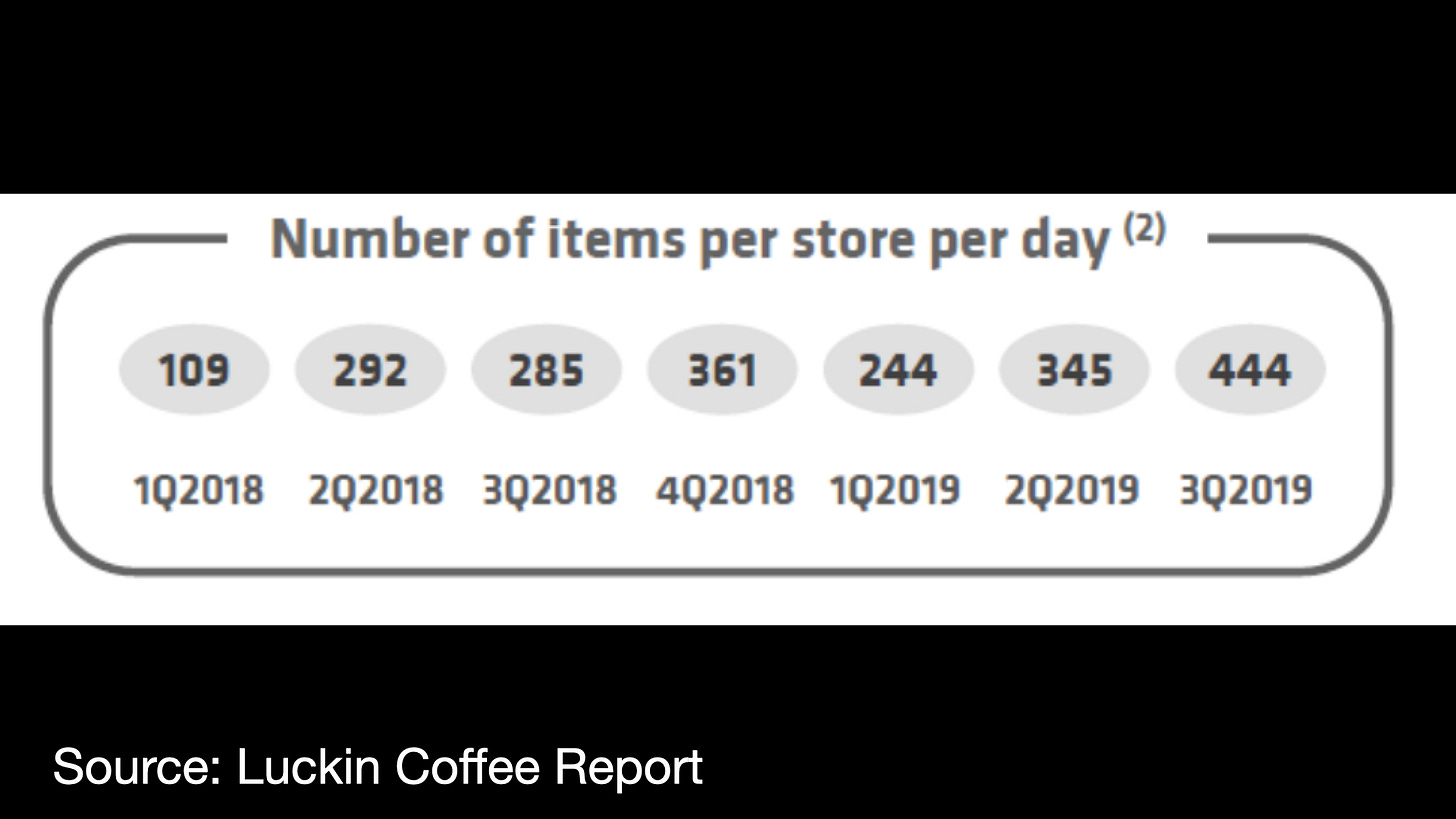
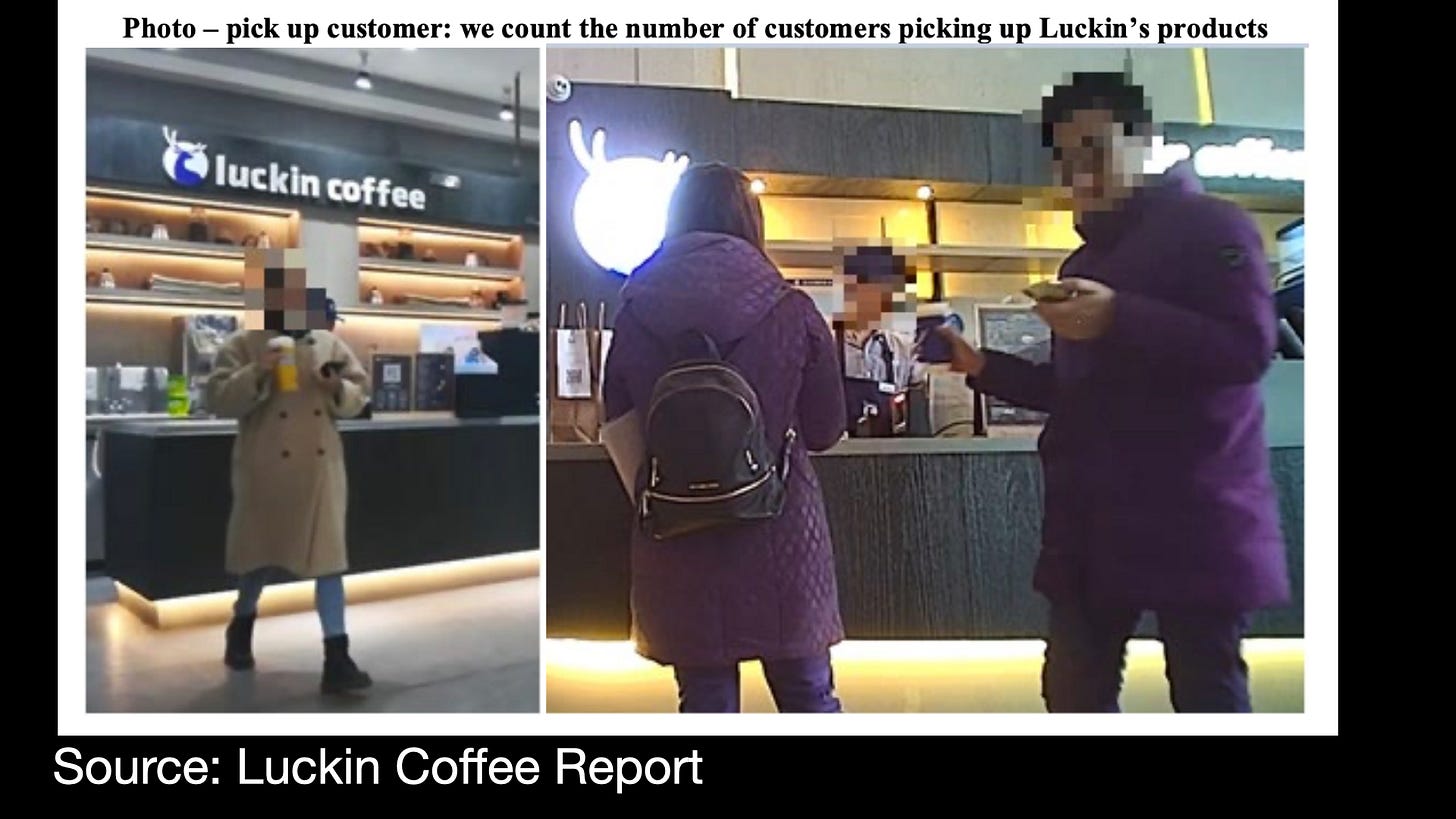
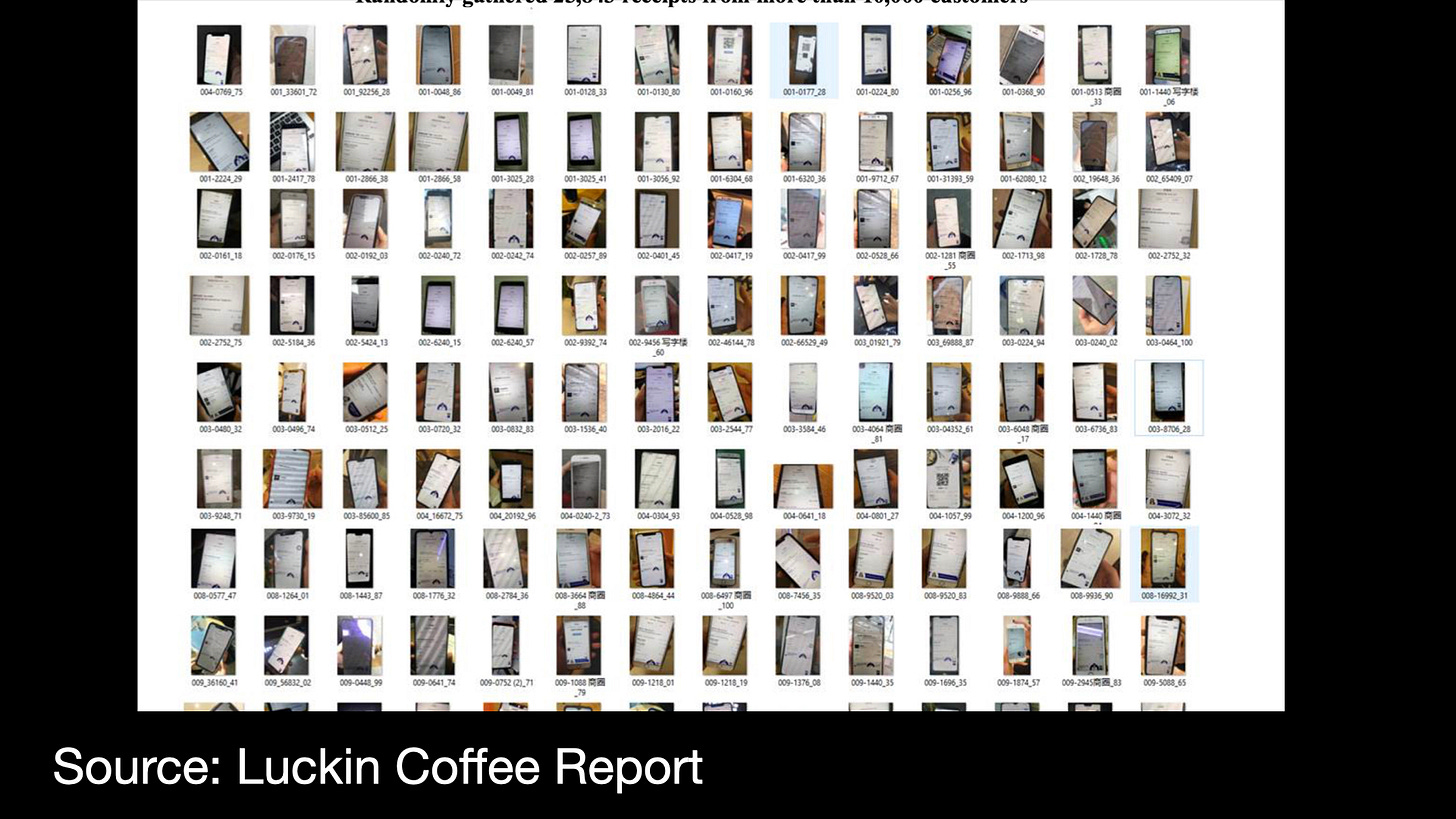
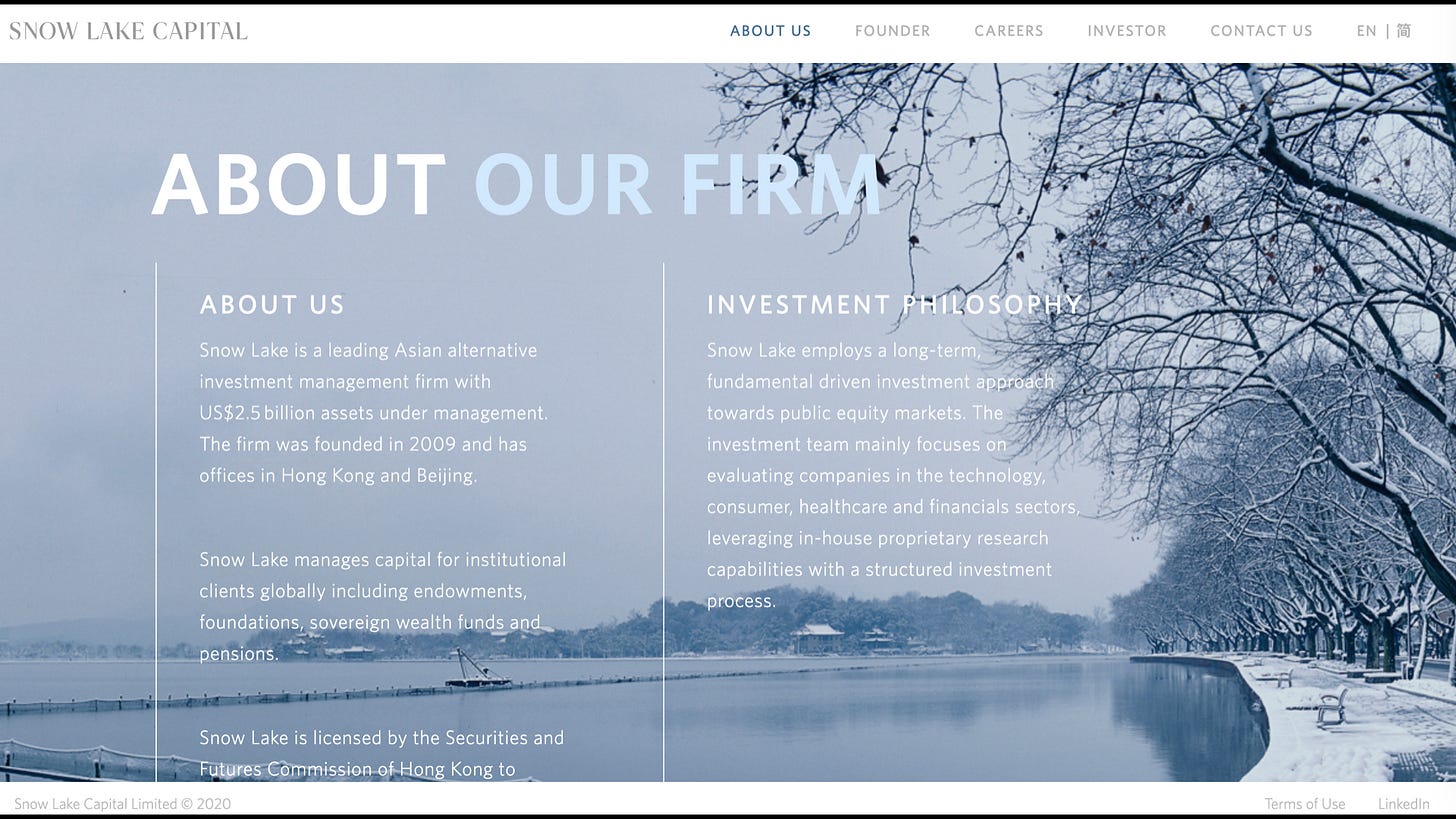
That last question is something I'm curious about too. Was it a lucky shot, or maybe someone's gut feeling? Or maybe a repeat customer thought the numbers looked too good to be true compared to their personal experience.